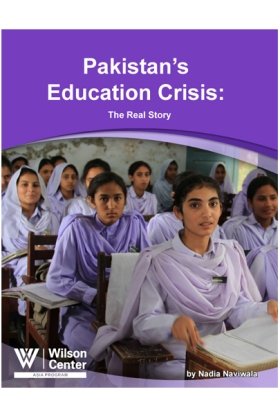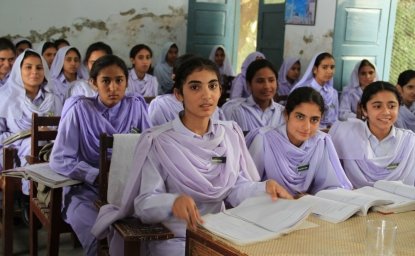Pakistan's Education Crisis: The Real Story (Report)


Pakistan suffers from an extensive education crisis. Millions of Pakistani children do not attend school, and those that do must deal with absent teachers and poor learning environments, among other challenges. While this crisis is frequently discussed in Pakistan and beyond, it is often misunderstood. This new Wilson Center report, based on dozens of interviews with officials and experts across Pakistan, seeks to set the record straight. It reveals, for example, that contrary to popular narratives, Pakistan's education spending has increased significantly in recent years and is now nearly equivalent to the military budget. The report argues, however, that Pakistan must spend better, not simply spend more, in order to ease and ultimately solve its education crisis. Nadia Naviwala, the report's author and a Wilson Center public policy fellow, highlights myths about Pakistan's education budget and foreign aid; and compares how foreign donors and local leaders have sought to transform education in Pakistan, with emphasis on the central challenge of very poor learning levels.
Cover Image: UK Department for International Development, CC 2.0
Author

Independent Writer on Foreign Aid, Local Philanthropy, Civil Society, and Education in Pakistan; Former USIP Country Representative for Pakistan, Former USAID Pakistan Desk Officer; Former U.S. Senate National Security Aide; Former Public Policy Fellow;

Indo-Pacific Program
The Indo-Pacific Program promotes policy debate and intellectual discussions on US interests in the Asia-Pacific as well as political, economic, security, and social issues relating to the world’s most populous and economically dynamic region. Read more




